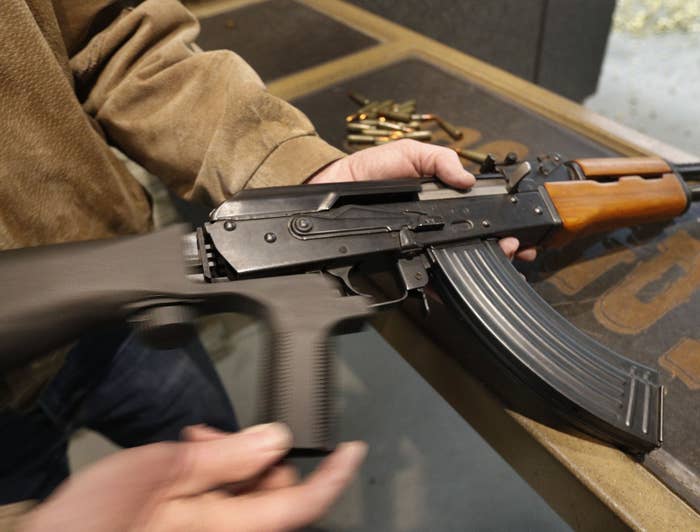
WASHINGTON — The US Supreme Court on Friday denied a request to delay the Trump administration’s ban on so-called bump stocks. The decision means it will soon by illegal to have the devices, which allow semiautomatic weapons to fire at a faster rate and were used in the Las Vegas mass shooting in 2017.
The ban’s challengers repeatedly lost in the lower courts, and they had asked the justices for a temporary stay while they took the case up to the Supreme Court. In a brief order, a majority of the court said no. Justices Clarence Thomas and Neil Gorsuch said they would have granted the request.
The Justice Department issued the new rule banning bump stocks in mid-December, and it was set to take effect at the end of March. Once the rule takes effect, it will be illegal to own or possess the devices nationwide, and anyone who has one will have to destroy it or turn it over to law enforcement.
The bump stock ban came out of the administration’s response to an October 2017 mass shooting in Las Vegas, in which a gunman fired hundreds of rounds of ammunition into a crowd using multiple semiautomatic rifles featuring bump stocks. Fifty-eight people died and around 500 people were wounded.
Under the new rule, bump stock devices are classified as machine guns, which generally are illegal under federal law. Anyone possessing a bump stock after the rule takes effect could face criminal prosecution.
The challengers argued that the ban violated federal law, and they also challenged the authority of now-former acting attorney general Matthew Whitaker to sign off on the rule in December. A district court judge rejected those arguments, and a 2–1 panel of the US Court of Appeals for the DC Circuit upheld that decision earlier this month. Current Attorney General Bill Barr reevaluated the rule when he took office and concluded it was appropriate, which made any Whitaker-related arguments moot, the DC Circuit majority held.
The DC Circuit judges also agreed with the district court judge that the challengers were unlikely to succeed in arguing that the legal definition of a machine gun couldn’t include bump stocks. The Bureau of Alcohol, Tobacco, Firearms and Explosives (ATF) was entitled to deference in adopting the rule because the definition of a machine gun under federal law is ambiguous, leaving room for ATF to adopt a reasonable interpretation, the court held.
“The Bureau is better equipped than we are to make the pivotal policy choice between a mechanism-focused and shooter-focused understanding of ‘function of the trigger,’” the DC Circuit judges in the majority wrote.
“We are pleased,” Justice Department spokesperson Kerri Kupec said in an email to BuzzFeed News on Friday.
The challenge to the ban was brought by three groups of bump stock owners and gun rights organizations. Erik Jaffe, a lawyer for one of the challengers, the Firearms Policy Foundation, said in an email to BuzzFeed News that the Supreme Court’s order “was disappointing but not entirely unexpected.” He said they would continue to pursue the case.
UPDATE
Updated with comment from attorney Erik Jaffe.

